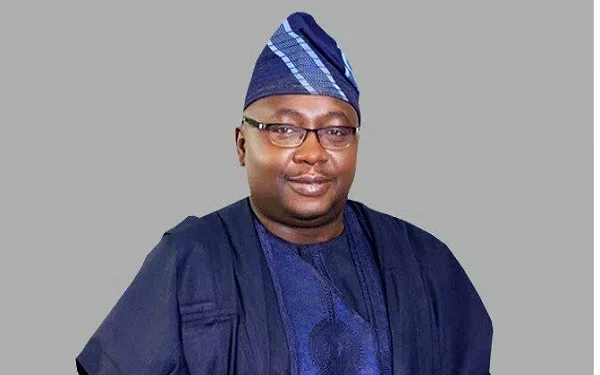The Federal Government’s ongoing power sector reforms are beginning to yield measurable results, with more than $2 billion in new capital flowing into the industry since the current administration assumed office, the Minister of Power, Chief Adebayo Adelabu, has said.
Adelabu disclosed this in Lagos during the PricewaterhouseCoopers (PwC) Annual Power and Utilities Roundtable 2025, themed “Nigeria’s Multi-tier Electricity Market: Imperatives for Successful Evolution.”
At the centre of the reform agenda is the long-standing metering gap, where only six million of the 13 million registered electricity consumers have been metered, leaving nearly half on estimated billing—an approach widely criticised for being inaccurate and exploitative.
To close this gap, the Minister announced an aggressive rollout under two major initiatives: the N700 billion Presidential Metering Initiative, which targets the deployment of 10 million meters over five years, and the $500 million District Sector Recovery Programme, expected to add 3.45 million meters and introduce real-time monitoring systems.
“Remote tracking of meters will improve collections, boost liquidity, and ensure that consumers pay only for what they use,” he said.
Beyond consumer-level reforms, Adelabu highlighted deeper structural changes in power generation, sales, and regulation. A major milestone, he said, is the decentralisation enabled by the Electricity Act 2023, which allows states to independently generate, transmit and distribute electricity.
This shift has triggered the rise of state-level electricity markets for the first time, enabling regions to design energy solutions tailored to local needs.
He also noted the approval of Nigeria’s first National Integrated Electricity Policy in more than two decades, clarifying the roles of regulators, utilities, investors, and technical operators across both traditional and renewable segments of the energy sector.
Adelabu said commercialisation is reshaping the industry’s economics. Electricity revenue at the distribution level grew from N1 trillion in 2023 to N1.7 trillion in 2024, with projections nearing N2.3 trillion by December 2025. He emphasised that the rise was not due to tariff hikes but consumers shifting from diesel and petrol generators to grid supply.
On the technical front, the Minister stated that installed generation capacity has increased from 13 to 14 gigawatts. The sector also recorded an all-time peak generation of 5,801.44 MW and its highest-ever trading volume of 128,370.75 MWh.
Grid stability has improved as well: after 12 system collapses in 2024, only one incident has occurred in 2025, with power restored within hours.
A major breakthrough came with Nigeria’s first successful synchronisation of its transmission grid with the West African Power Pool (WAPP).
After a failed 2007 test that collapsed after seven minutes, the 2025 test lasted more than four hours. A final four-day test could enable permanent integration, allowing Nigeria to export power to neighbouring countries and generate new foreign exchange earnings.
Despite the progress, Adelabu stressed that the reform journey continues and called for stronger regulatory capacity, improved consumer protection and deeper public-private collaboration.
“Nigeria’s transition to a multi-tier electricity market is not optional—it is a necessity,” he said.
Also speaking, Lagos State Commissioner for Energy and Natural Resources, Engr. Abiodun Ogunleye, said the roundtable would shape the evolving relationship between the Nigerian Electricity Regulatory Commission (NERC) and new State Electricity Regulatory Commissions (SERCs).
He urged stakeholders to allow the new model time to mature: “Give us three years. If after that period we have not delivered meaningful impact at scale, then bring forward whatever reforms you wish. But for now, allow this model to run and demonstrate results.”
PwC’s Regional Senior Manager, Sam Abu, said the conversation was necessary because Nigeria’s electricity challenges remain real. He described the Electricity Act 2023 as transformative, enabling states to build and regulate their own markets for the first time.
“We are moving from a single, centralised model to a dynamic, multi-layered energy ecosystem—one that can drive competition, spur innovation, and deliver meaningful service improvements,” he said.
Abu noted that the transition will require strong regulation, investment, and coordination across government and industry. PwC, he said, remains committed to supporting stakeholders to build a stronger electricity market.
“Nigeria’s power reform is not an instant event—it is a journey that requires vision, discipline, cooperation and bold investment,” he added.
With rising investment, decreasing subsidy burdens, improved grid performance and increasing state participation, Nigeria appears to be shifting from a fragile power system to a more competitive and sustainable electricity market capable of driving national growth.















